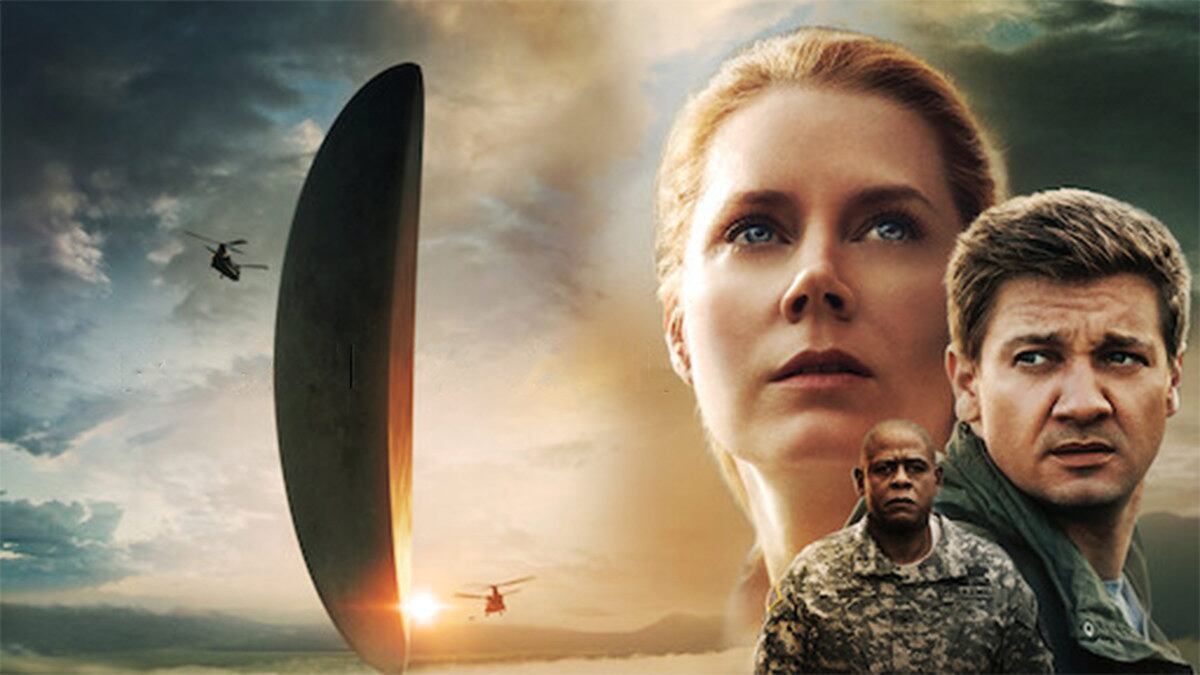Denis Villeneuve’s Arrival hits a little differently after a year of isolation.
With the Oscars set to air April 25, it felt fitting, as we chose one streaming gem to surface for this month, to select the film that should have won Amy Adams her first gold statuette. (Or, at the very least, a best actress nomination.) Adams was long overdue for an Oscar nod by the time Arrival debuted in 2016; by then, she’d already turned in several meticulously calibrated performances in films including Doubt, The Fighter, and The Master, all three of which scored nominations but never won. Arrival, in many ways, underscores Adams’ greatest strength as an actress—a sensitivity toward a certain kind of inner fragility that allows her to embody characters in pain with restraint and dignity. That balance becomes the gravitational center around which Villeneuve’s lofty vision orbits—and five years later, Arrival’s message feels even more impactful now.
We first meet Adams’ protagonist, expert linguist Dr. Louise Banks, as she faces an unimaginable tragedy—one we absorb and then are left to quickly forget as giant space pods touch down in a dozen locations around the globe. Louise once assisted the U.S. Army with Farsi translations, and so soon enough, a colonel played by Forest Whitaker arrives on her doorstep to ask for her help in deciphering what these extraterrestrials want.
But despite all the spectacular events that follow, it’s the quiet opening montage that actually hints at Arrival’s final aims, which I will not spoil here for those who have yet to watch. As so often happens with first impressions, our brief glimpse at Louise’s tremendous loss is not entirely accurate—or at least, it’s inadequately contextualized. The film is a sparse but impassioned plea for connection—both global and, perhaps even more importantly, interpersonal.
Most of the officers around Louise behave like those in any typical sci-fi film. (Meaning, they’re too eager to blow the aliens and their yonic ships to smithereens to waste any time by, like, talking to them—or to each other.) Various countries go offline when the heptapods mention a “weapon,” which Louise insists might not mean what the officers think it does. As she struggles to learn this new extraterrestrial language, Louise insists that international cooperation with overseas experts studying their own heptapods will be crucial.
But even more important than Arrival’s globalist message are the personal implications it carries for both its protagonist and audience. The more we come to understand the heptapods, the more Arrival becomes Louise’s story—and in that shift comes its heart.
Apart from her work and that introductory tragedy, we know pretty much only one thing about Louise: She appears to live a very isolated life. Before she heads out to Montana, we mostly see Louise inside her tidy but cold apartment, cuddling her body pillow and reassuring her worried mother on the phone with a weary, “You know me...”
Here, Adams embodies a specific kind of loneliness—one that calcifies only after years spent caring for oneself without help, either by choice or not. (“Trust me,” she tells Jeremy Renner’s quantum physicist Ian Donnelly, “You can understand communication and still end up single.”) Villeneuve and Adams never allow Louise to fall into any dated “tragic single woman” tropes, instead grounding her somber existence in something deeper, more real and more human. Louise’s inner sorrow does not seem to stem from her singleness, but from the sort of forlorn resignation recognizable to anyone who’s experienced loss.
In the end, however, through a sort of third-act twist, Louise chooses connection—even in the face of certain tragedy.
That decision unfurls the rest of the film, contextualizing all that occurred before and assembling the fragmented images into one cohesive, heart-rending whole. What had at one point appeared to be a tragic backstory becomes the crux of a much more hopeful, life-affirming narrative, as the film shrinks from a science-fiction epic into a much more intimate exploration of love and grief, connection and loss.
When Arrival debuted in 2016—against the backdrop of a bitter election steeped in xenophobic discourse—its argument for global collaboration felt tailor-made for the debates of the time. But the source material, Ted Chiang’s novella “Story of Your Life,” was first published in 1998, and in 2021, the film’s questions feel just as urgent.
As we all (hopefully) begin to emerge from quarantine this year, it’s worth taking a moment to hold in our hands and examine our own loss, both as individuals and as part of a global community. The novel coronavirus has killed 2.79 million people worldwide. It has isolated us not only geographically, but in many cases emotionally. Everyone has experienced and navigated this worldwide disaster differently, and for many, the weight has been unbearable.
Each stage of this pandemic has felt uniquely daunting in its own way. But looking ahead, the bulk of our collective healing will lie in re-establishing those connections that have wasted away in quarantine—with our friends and families, with our neighbors, with ourselves. Some of us will do so with newly rooted social anxieties; some of us will have to do so while grieving loved ones taken far too soon.
I found myself thinking about all of this as I watched Arrival over the weekend. The aliens, after all, are just an accessory; at its core, Villeneuve’s film is a parable about grief. It challenges us to love even when doing so comes at a great price—to compare the grief of loss to that of never having tried to connect with something bigger than ourselves. That message is not bound to any year or era—but right now, it certainly hits home.
Arrival is available to rent on Amazon Prime, YouTube, Google Play, and more, and will arrive on Epix in May.

